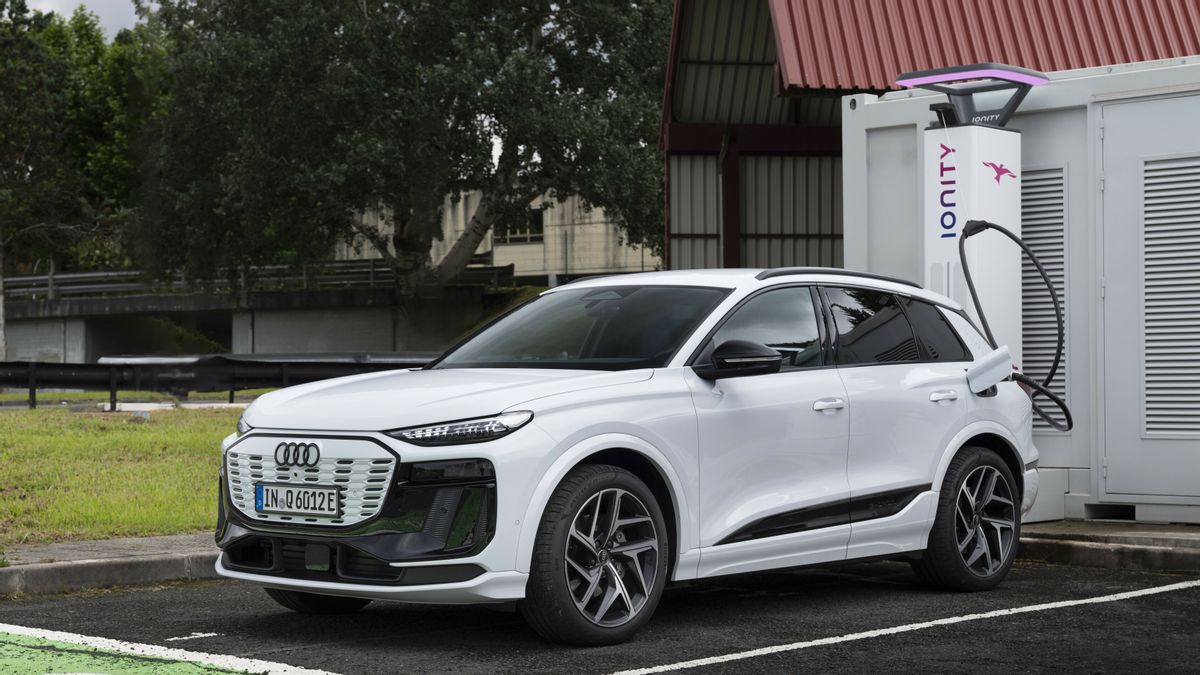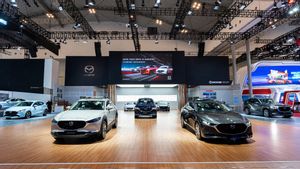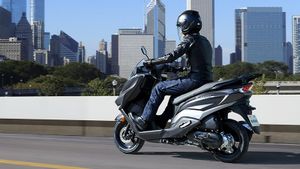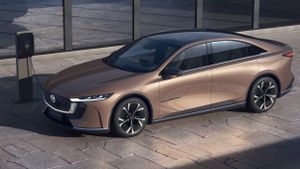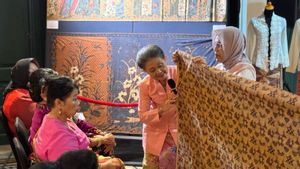JAKARTA - Audi, an automotive manufacturer known for its commitment to globally developing electric vehicles (EVs), including in China, has confirmed that they will not use the logo of four iconic rings on their electric cars in the bamboo curtain country.
According to a report from Automotive News, Tuesday, August 6, this decision was taken based on the consideration of the brand's image. In addition, this step also reflects the use of platforms developed with SAIC Motor as well as increasing dependence on local suppliers and technologies.
It remains unclear whether Audi's electric vehicle in China will use a different logo or only have the 'Audi' emblem to highlight the identity of the model. One of the models named internal "Purple" is planned to be introduced in November. According to other sources, Audi plans to launch at least nine EV models in China by 2030.
Audi refused to comment further on this matter. Meanwhile, SAIC Motor confirmed that this electric vehicle will continue to defend the original DNA of the German brand.
SEE ALSO:
China is one of the largest markets for Audi in the electric vehicle segment. However, in the first six months of 2024, Audi only managed to sell less than 10,000 EV units, far behind competitors such as Nio and Zeekr.
To overcome this challenge, Audi partnered with SAIC Motor in developing a special EV platform for the Chinese market. The latest series of electric vehicles from Audi will use batteries from CATL and the ADAS system from Chinese startup, Momenta. In addition, SAIC Motors' electrical architecture will be used in the "Purple" series.
This step was taken by Audi as an alternative while waiting for the arrival of the latest platform from the Volkswagen Group, namely the Scalable Systems Platform (SSP), which was delayed until 2026. Audi's growth in electric car development was hampered by delays in the development of the E3 2.0 software which is the core component of the SSP, which offers level three autonomous driving technology.
Delays in SSP architectural development also caused the Trinity project of the Volkswagen Group to be delayed until 2029 or 2030. Previously, the Trinity model was scheduled to be introduced in 2026 as the first model to use the SSP platform.
In addition to collaborating with SAIC Motor, Audi also partnered with FAW in building an EV factory in China. The plant will start producing vehicles with the Premium Platform Electric (PPE) architecture by the end of 2024.
The English, Chinese, Japanese, Arabic, and French versions are automatically generated by the AI. So there may still be inaccuracies in translating, please always see Indonesian as our main language. (system supported by DigitalSiber.id)
